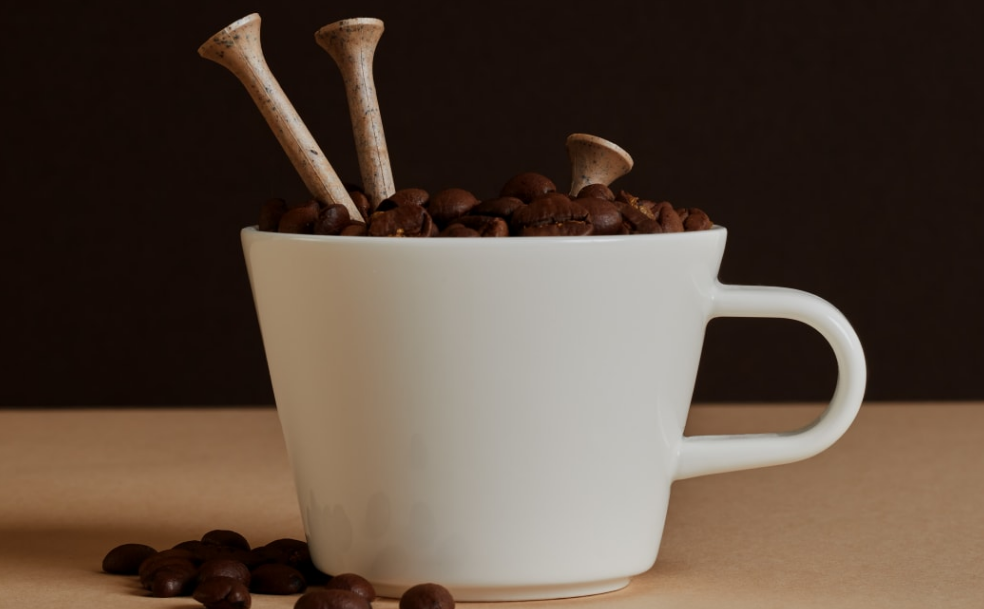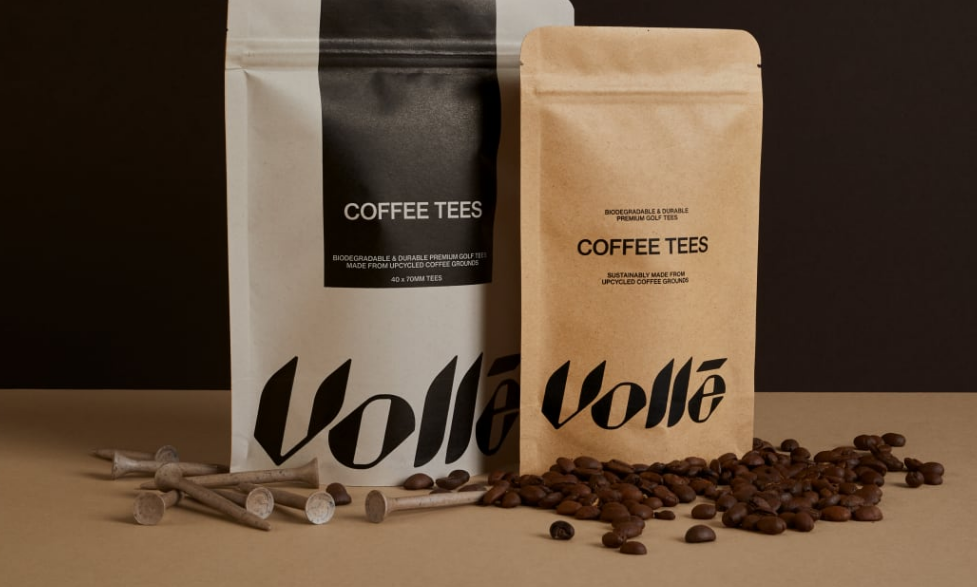
Waste coffee grounds collected from New Zealand cafes will be used to make biodegradable golf tees for the local and international market.
It's the brainchild of Kiwi company Volle Golf, which has attempted to remove plastic from the golf course - resulting in the world's first coffee tee.
Co-founder Kael Deherrera started the company four-and-a-half years ago, with a goal to do things differently.
"We were trying to investigate and understand how golf products are made and essentially think about how we could do things differently and more sustainably," he said.
Volle launched New Zealand's first premium golf ball this year, before moving on to the tee as an obviously complimentary product.
"It led us into a bit of a deep dive on the tee industry, understanding that plastic is still heavily used in golf tees at the moment," he said.
"And obviously there's a natural plastic problem with leaving plastic tees scattered around the golf course."

Volle started to investigate alternative materials, including sawdust - but found there were issues with durability.
"To make a truly sustainable tee, it needs to be durable, it can't break on every shot," he said.
"We actually discovered coffee was being used in a lot of furniture and other bits and pieces as a replica for wood."
Deherrera said 60 to 70 percent of each coffee-tee was made from coffee grounds, with other natural materials added to increase durability - including sugar cane and casein carbonate.
Compared to wooden tees, which he said would break on average after three to four shots, Volle's tees would last about six to seven shots.
"So we say there's about a 66 percent increase in durability, relative to a wooden tee."

"Because I think the key point is right now all our tees are imported and the majority come from China."
The tees come in a bag designed to look like a coffee packet - and they even smell like your morning brew.
Deherrera said Volle were hoping to create a replacement for all other tees.
"Our goal is to be in every single golf shop around the country, and then obviously look for international markets.
"We're calling this the most environmental and sustainable tee on the planet and we think there's no other reason to be using a plastic or a wooden tee again."













